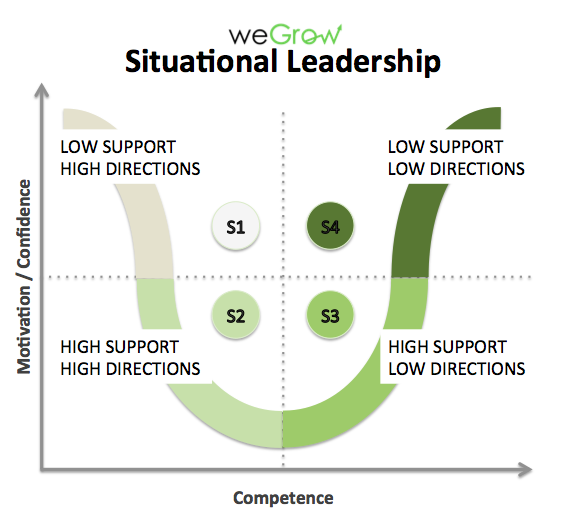Situational Leadership: people are neither good nor bad !

People are neither good nor bad
If you are working in a wide corporate environment, you most probably had discussions between managers about some of your talent pipeline and resources. I find that it often goes like this:
“John? Oh yes is good, solid guy, we should keep an eye on him and have him change role some time in the future”
or
“Tracey? Yeah I’m not so sure, she has been struggling a bit lately hasn’t she?”
My point is the following: managers have a tendency to generalise (aka “general-lie-se”) and categorise people into either good performers or less good ones. Once their view is set, it will generally take time and efforts to change it.
I’m not saying that this is good or bad, it just is. And when you manage a team of 100 or more people, let’s admit that you can’t afford to spend vast amount of time to appreciate every one’s performance and growth in detail and on a regular basis.
My point is the following: nobody is either good nor bad.
What do I mean? I mean that, as described in the situational leadership model, one must remember that people perform well or not so well in a specific environment and for a specific task. That task requires certain skills and each individual has a certain level of capability for that particular task. So, nobody is either good or bad, but a fair generalisation might be “Amanda is quite talented at facilitating workshops and keeping the audience engaged throughout” or “Adam is a great public speaker”.
What is the risk of doing such generalisations?
The best example I can think of is the classic one of promoting a great individual contributor into a manager role. The person might be a great performer in a role where he could focus on a singe task independently, and using his knowledge and expertise, but that does not make him/her a great manager! Managing people is a whole different game, and the person will need to be guided and supported to learn how to build effective team and how to engage his people.
The metaphor here would be: a great NBA player is not necessarily a great NBA coach.
How can situational leadership help?
Even the great performers will require solid guidance and support when they learn a new skill. As a manager your role is to ensure that you avoid generalising someone as great and therefore assume that this individual requires less time and attention. This could have serious consequences for your own results, and could also impact the person’s level of self-confidence.
Situational Leadership is all about adapting your style as a manager based on the individual and his/her level of capability for the task that is required. Remember that rather than simply asking yourself “how good is he/she?”, rather ask yourself: “how good is he/her for that particular task?”.
For more information, check out my full training course on People Management and Corporate Leadership.
What do you think? Feel free to leave a comment, I will respond!
